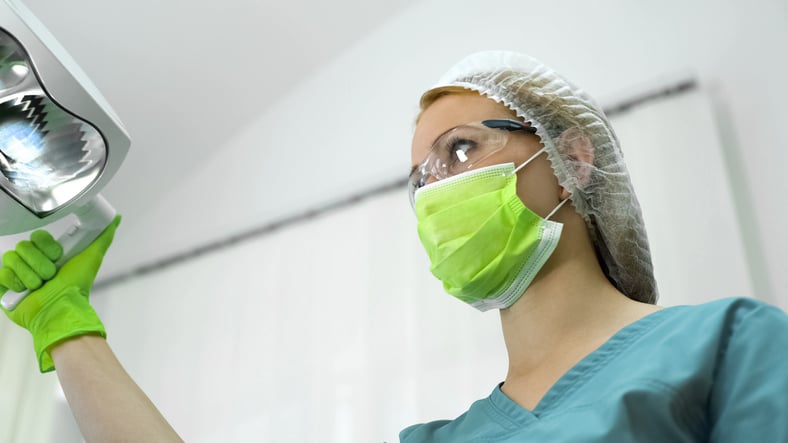
A medical suction pump is a key piece of equipment for oral surgery. The right suction machine improves patient outcomes, reduces the risk of complications, and can promptly intervene in the event of a serious dental emergency.
Here are four key reasons dentists should invest in a quality medical suction machine.
1. Protecting the Airway Under Anesthesia
Patients with dental anxiety may prefer to undergo even routine procedures under general anesthesia. Other procedures, such as complex extractions and implants, require the use of anesthesia, regardless of patient preference. The right medical suction device helps maintain a patent airway under anesthesia. With diligent monitoring, suction can also prevent aspiration in a patient who unexpectedly begins vomiting or bleeding.
2. Removing Saliva and Other Secretions
Performing any procedure in the mouth presents an immediate challenge: The continual production of saliva makes it difficult to maintain a sterile surgical field, correctly use bonding agents, or see the tooth on which the dentist is operating.
Proper suctioning keeps the mouth clean, enabling procedures that might otherwise be impossible. When used alongside an HVE tool, a medical suctioning tool also removes aerosols and surgical debris from the mouth.
The urge to swallow accumulating saliva and other debris is hard to resist. Patients may try to swallow as soon as they feel any excess moisture in the mouth, increasing the risk of choking and potentially interfering with the procedure. By promptly removing saliva, medical suction improves patient comfort and enables smoother, quicker procedures.
3. Preventing Aspiration and Choking
Choking is a common fear among dental patients, particularly children. The presence of several foreign objects in the mouth, difficulty swallowing, and a dry mouth all conspire to make patients feel as if they are at risk of choking. For some, this can be a deterrent to seeking care.
The risk of choking in dentistry is more than a misplaced fear. Choking presents a very real danger, especially in people with compromised airways, poor muscle tone, complex dental histories, or significant oral trauma. A quality medical suction pump greatly reduces the risk by promptly removing oral secretions and surgical debris. Additionally, the right suction device allows a dentist or dental assistant to quickly remove debris lodged in or near the throat.
Dentists who work with children or fearful patients may find that explaining the use of suction offers significant reassurance. When patients know that a dentist will remove debris to prevent choking, they may feel less anxious about treatment. This promotes better oral health and greater patient compliance.
4. Intervening in Dental Emergencies
Even the most skilled dentists can face unexpected emergencies, such as allergic reactions to dental medications or equipment, aspiration, and choking. Protecting the airway during these emergencies is critical for protecting patients. The right medical suction pump can help clear the airway during various surgical emergencies and may prevent aspiration in a patient experiencing a medical crisis.
Choose the Right Equipment
For dentists and oral surgeons, portable suction units can prove especially helpful. They enable dentists to perform emergency procedures and can help hospitals meet their requirements under the Emergency Medical Treatment and Labor Act to be able to tend to patients within a 250-yard radius of the facility. It is important to select a suction unit that delivers sufficient suction—something many units fail to do. Indeed, a 2010 military analysis emphasized that most field suction units deliver suction that is too weak to safely remove debris and contaminants from the oral cavity.
SSCOR offers a wide range of medical suction that can meet the demands of even the busiest dentists and oral surgeons. For help selecting the right suction device for your office, download our free guide, The Ultimate Guide to Purchasing a Portable Emergency Suction Device.
Editor's Note: This blog was originally published in December 2022. It has been re-published with additional up-to-date content.
















